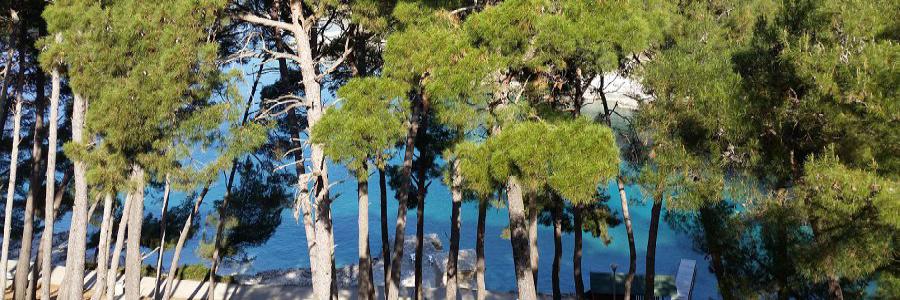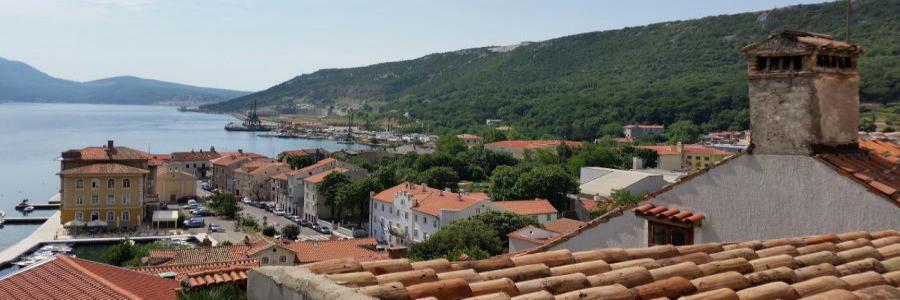Project results
The List of Bioethical Standards
The primary goal of bioethical standards is to provide decision makers at the level of local self-government with a list of concrete guidelines that should lead to an improvement in the relationship between people and the environment (primarily but not exclusively the living environment) with the ultimate aim of preserving health and improving the quality of life of people, and protecting biodiversity and other natural resources with respect to local economic plans and choices (‘sustainable development’).
The process of defining bioethical standards was conceived in a way that builds on the theoretical basis of ‘European bioethics’, in other words the bioethics of Fritz Jahr but also Van Rensselaer Potter and other ‘compatible’ thinkers. Using the multi-perspective confrontation method, their ideas and attitudes were integrated into an orientation platform. This platform was presented to local stakeholders in each of the three partner communities (Mali Lošinj, Kršan, Bakar) – representatives of local self-government, tourist boards, NGOs and other relevant takeholders, whose arguments influenced the revision of the list of standards. Local governments will have the opportunity to use the final list of standards as a basis for strategic thinking about development and to systematically increase the quality of life in their area, but also as a kind of ‘tourist ID’. Furthermore, it is expected that local people will achieve additional bioethical awareness that will make it impossible to make certain mistakes and prevent the repeating of the mistakes of other areas.
The list of bioethical standards consists of three groups of standards that are intertwined. For practical reasons, these groups are called ‘animals’, ‘plants’, and ‘people and the environment’. When it comes to standardising our relationship towards animals and plants, we are aware that we are suggesting many novelties that should take into account specific local characteristics and be introduced gradually rather than requiring sudden changes in practices and awareness. Adhering to some of the standards could lead to changing the balance in a specific ecosystem (e.g. encouraging a vegetarian diet will lead to increased cultivation and consumption of plants), while certain others could signalise political preferences (e.g. TTIP free zones). The last group of standards named ‘people and the environment’ is primarily aimed at benefitting a particular group or the entire community. It is partly based on examples of good practice (such as the Healthy Cities project) where public health institutions have been involved in the design and implementation of activities. A part of bioethical standards directly includes public health programmes aimed at prevention or care for individual groups in society.
Introducing any kind of limitations on our well-established behaviour – among other things, by accepting bioethical standards – actually means trying to return to a ‘natural’ behaviour by means of which we expect to facilitate the survival of nature as we know it. However, in doing so, we forget that had we remained in harmony with nature, we would have eaten both animals and plants without questioning it, and that awareness of vegetarianism and the problems that arise with regard to the consumption of animals have occurred as side effects of the development of the frontal lobe and consequently empathy. It is not impossible that one day, due to a better knowledge about plants and their senses, people will also be stung with remorse because of the consumption of plants. For the moment, there is obviously a significant difference in perception of our duties towards animals and our relationship with plants. As a result, we have to admit that here we deviate from the theoretical presumptions of Fritz Jahr and do not respect the sacredness of life but rather the holiness of choice, with the idea that it is neither necessary nor possible to unconditionally preserve every life, but that it can and must be unconditionally promoted. After all, the ambition of bioethical standards is to make the world a better place rather than to put an end to it – even in its existing imperfect form.
Igor Eterović, Martina Šendula Pavelić, In Search of the Bioethical Leadership Standards/U potrazi za standardima bioetičkog rukovođenja, 16. lošinjski dani bioetike, 14. - 17. 5. 2017., Mali Lošinj.
Željko Kaluđerović, Poimanje duše u fragmentima poslednjeg fisičara, 15. lošinjski dani bioetike/15th Lošinj Days of Bioethics, 15. - 18. 5. 2016., Mali Lošinj.
Iva Rinčić, Amir Muzur, Velika briga V. R. Pottera: “Populacijska bomba”, 15. lošinjski dani bioetike / 15th Lošinj Days of Bioethics, 15. - 18. 5. 2016., Mali Lošinj.
Tatjana Ivošević, Uloga lokalne zajednice u zaštiti kvalitete zraka, Europska bioetika na djelu EuroBioAct: Radionice bioetičkih standarda, Medicinski fakultet Sveučilišta u Rijeci, 10. - 11. 6. 2016., Rijeka.
Željko Kaluđerović, Respektovanje fitodiverziteta, Europska bioetika na djelu EuroBioAct: Radionice bioetičkih standarda, Medicinski fakultet Sveučilišta u Rijeci, 10. - 11. 6. 2016., Rijeka.
Ivica Kelam, Upravljanje poljoprivrednim zemljištem, Europska bioetika na djelu EuroBioAct: Radionice bioetičkih standarda, Medicinski fakultet Sveučilišta u Rijeci, 10. - 11. 6. 2016., Rijeka.
Tomislav Krznar, Lovstvo kao mehanizam zaštite okoliša, Europska bioetika na djelu EuroBioAct: Radionice bioetičkih standarda, Medicinski fakultet Sveučilišta u Rijeci, 10. - 11. 6. 2016., Rijeka.
Srećko Leiner, Razuman odnos lokalne zajednice prema prirodnim ekosustavima, sadašnjost su i budućnost prepoznatljivog načina života i održivog turizma – delta Neretve kao primjer, Europska bioetika na djelu EuroBioAct: Radionice bioetičkih standarda, Medicinski fakultet Sveučilišta u Rijeci, 10. - 11. 6. 2016., Rijeka.
Sanja Ožić, Gospodarenje otpadom: od središnje uloge u kružnom gospodarstvu Europske unije do provedbe u jedinicama lokalne samouprave Republike Hrvatske, Europska bioetika na djelu EuroBioAct: Radionice bioetičkih standarda, Medicinski fakultet Sveučilišta u Rijeci, 10. - 11. 6. 2016., Rijeka.
Vanja Vasiljev Marchesi, Tomislav Rukavina, Lovorka Bilajac, Zdravlje u zajednici, Europska bioetika na djelu EuroBioAct: Radionice bioetičkih standarda, Medicinski fakultet Sveučilišta u Rijeci, 10. - 11. 6. 2016., Rijeka.
Robert Doričić, European Bioethics in Action: project presentation, EuroBioAct International Conference Declaring war on declarations: various bioethical theories respond to modern practical challanges, Medicinski fakultet u Rijeci, 12. - 13. 6. 2015., Rijeka.
Participation at conferences
2017
Amir Muzur, Iva Rinčić, Specific role of lawyers and the legal perspective in the development of integartive Bioethics in Croatia, La bioethique, le juge et les droits de l’homme, 11.-12.04.2017, Ciudad de Panama.
Robert Doričić, Bioetički standardi u svjetlu javnozdravstvene (bio)etike / Bioethical Standards in the Light of Public Health (Bio)ethics, 16. lošinjski dani bioetike, 14. - 17. 5. 2017., Mali Lošinj.
Igor Eterović, Martina Šendula Pavelić, In Search of the Bioethical Leadership Standards/U potrazi za standardima bioetičkog rukovođenja, 16. lošinjski dani bioetike, 14. - 17. 5. 2017., Mali Lošinj.
Maja Miloš, Sadržaj i implementacija bioetičkih standarda – stavovi predstavnika lokalnih zajednica (Mali Lošinj, Bakar, Kršan) / The Content and Implementation of Bioethical Standards – Attitudes of the Local Community Representatives (Mali Lošinj, Bakar, Kršan), 16. lošinjski dani bioetike, 14. - 17. 5. 2017., Mali Lošinj.
Maja Miloš, Robert Doričić, Local Community Attitudes towards Implementation of the Bioethical Standards, 10th Medical Conference on Medical Practice in 21st Century: Emerging Trends, 22.-25.08.2017, Sofia, Bulgaria.
2016
Robert Doričić, Igor Eterović, Javnozdravstveni principi kao izvor bioetičke refleksije, 15. lošinjski dani bioetike / 15th Lošinj Days of Bioethics, 15. - 18. 5. 2016., Mali Lošinj.
Željko Kaluđerović, Poimanje duše u fragmentima poslednjeg fisičara, 15. lošinjski dani bioetike/15th Lošinj Days of Bioethics, 15. - 18. 5. 2016., Mali Lošinj.
Iva Rinčić, Amir Muzur, Velika briga V. R. Pottera: “Populacijska bomba”, 15. lošinjski dani bioetike / 15th Lošinj Days of Bioethics, 15. - 18. 5. 2016., Mali Lošinj.
Robert Doričić, Javnozdravstveni parametri triju lokalnih zajednica – temelj bioetičkih odrednica: primjeri Bakra, Kršana i Maloga Lošinja, Europska bioetika na djelu EuroBioAct: Radionice bioetičkih standarda, Medicinski fakultet Sveučilišta u Rijeci, 10. - 11. 6. 2016., Rijeka.
Igor Eterović, Traženje bioetičkih smjernica u filozofiji planinarstva, Europska bioetika na djelu EuroBioAct: Radionice bioetičkih standarda, Medicinski fakultet Sveučilišta u Rijeci, 10. - 11. 6. 2016., Rijeka.
Nada Gosić, Bioetička edukacija u lokalnoj zajednici, Europska bioetika na djelu EuroBioAct: Radionice bioetičkih standarda, Medicinski fakultet Sveučilišta u Rijeci, 10. - 11. 6. 2016., Rijeka.
Tatjana Ivošević, Uloga lokalne zajednice u zaštiti kvalitete zraka, Europska bioetika na djelu EuroBioAct: Radionice bioetičkih standarda, Medicinski fakultet Sveučilišta u Rijeci, 10. - 11. 6. 2016., Rijeka.
Hrvoje Jurić, Ispravna prehrana i životinje, Europska bioetika na djelu EuroBioAct: Radionice bioetičkih standarda, Medicinski fakultet Sveučilišta u Rijeci, 10. - 11. 6. 2016., Rijeka.
Željko Kaluđerović, Respektovanje fitodiverziteta, Europska bioetika na djelu EuroBioAct: Radionice bioetičkih standarda, Medicinski fakultet Sveučilišta u Rijeci, 10. - 11. 6. 2016., Rijeka.
Ivica Kelam, Upravljanje poljoprivrednim zemljištem, Europska bioetika na djelu EuroBioAct: Radionice bioetičkih standarda, Medicinski fakultet Sveučilišta u Rijeci, 10. - 11. 6. 2016., Rijeka.
Tomislav Krznar, Lovstvo kao mehanizam zaštite okoliša, Europska bioetika na djelu EuroBioAct: Radionice bioetičkih standarda, Medicinski fakultet Sveučilišta u Rijeci, 10. - 11. 6. 2016., Rijeka.
Denis Leiner, Prilagodljivost ptica na urbane sredine, Europska bioetika na djelu EuroBioAct: Radionice bioetičkih standarda, Medicinski fakultet Sveučilišta u Rijeci, 10. - 11. 6. 2016., Rijeka.
Srećko Leiner, Razuman odnos lokalne zajednice prema prirodnim ekosustavima, sadašnjost su i budućnost prepoznatljivog načina života i održivog turizma – delta Neretve kao primjer, Europska bioetika na djelu EuroBioAct: Radionice bioetičkih standarda, Medicinski fakultet Sveučilišta u Rijeci, 10. - 11. 6. 2016., Rijeka.
Amir Muzur, Standardi u bioetici: motivi, efekti, limiti, Europska bioetika na djelu EuroBioAct: Radionice bioetičkih standarda, Medicinski fakultet Sveučilišta u Rijeci, 10. - 11. 6. 2016., Rijeka.
Sanja Ožić, Gospodarenje otpadom: od središnje uloge u kružnom gospodarstvu Europske unije do provedbe u jedinicama lokalne samouprave Republike Hrvatske, Europska bioetika na djelu EuroBioAct: Radionice bioetičkih standarda, Medicinski fakultet Sveučilišta u Rijeci, 10. - 11. 6. 2016., Rijeka.
Iva Rinčić, Arhitektura u službi života: grad kao inkubator bioetičkih standarda, Europska bioetika na djelu EuroBioAct: Radionice bioetičkih standarda, Medicinski fakultet Sveučilišta u Rijeci, 10. - 11. 6. 2016., Rijeka.
Hans-Martin Sass, Health and illness of the body politics, Europska bioetika na djelu EuroBioAct: Radionice bioetičkih standarda, Medicinski fakultet Sveučilišta u Rijeci, 10. - 11. 6. 2016., Rijeka.
Boštjan Surina, Željka Modrić Surina, Rijetke biljke – njihove osobitosti i razlozi ugroženosti, Europska bioetika na djelu EuroBioAct: Radionice bioetičkih standarda, Medicinski fakultet Sveučilišta u Rijeci, 10. - 11. 6. 2016., Rijeka.
Gordana Šimunković, Zdravlje i radni okoliš, Europska bioetika na djelu EuroBioAct: Radionice bioetičkih standarda, Medicinski fakultet Sveučilišta u Rijeci, 10. - 11. 6. 2016., Rijeka.
Vanja Vasiljev Marchesi, Tomislav Rukavina, Lovorka Bilajac, Zdravlje u zajednici, Europska bioetika na djelu EuroBioAct: Radionice bioetičkih standarda, Medicinski fakultet Sveučilišta u Rijeci, 10. - 11. 6. 2016., Rijeka.
Valerije Vrček, GMO u svjetlu enciklike o brizi za zajednički dom Laudato si’, Europska bioetika na djelu EuroBioAct: Radionice bioetičkih standarda, Medicinski fakultet Sveučilišta u Rijeci, 10. - 11. 6. 2016., Rijeka.
Damir Žubčić, Čovjek i kućni ljubimci – može li biti bolje?, Europska bioetika na djelu EuroBioAct: Radionice bioetičkih standarda, Medicinski fakultet Sveučilišta u Rijeci, 10. - 11. 6. 2016., Rijeka.
Iva Rinčić, Amir Muzur, Engendering bioethics: framework, scope, and limitations within the bioethical-standards approach. 5th Endendering International Conference: Engendering Habitat III. Facing the Global Challenges in Cities, Climate Change and Transport, 5.-6.10.2016, Madrid.
Robert Doričić, Smjernice na putu k stvaranju bioetičkih standarda – primjeri dobre prakse Peti međunarodni bioetički simpozij, 21. - 22. 10. 2016., Sarajevo.
Amir Muzur, Iva Rinčić, Ćeif kao bioetičko pitanje. Peti međunarodni bioetički simpozij, 21. - 22. 10. 2016., Sarajevo.
2015
Željko Kaluđerović, Anaksimenovo razumijevanje života/Anaximenes’ understanding of life, 14. lošinjski dani bioetike, 17. - 20. 5. 2015., Mali Lošinj.
Amir Muzur, Iva Rinčić, Bioetika: znanost ili religija/Bioethics: science or religion, 14. lošinjski dani bioetike, 17. - 20.5. 2015., Mali Lošinj.
Iva Rinčić, Amir Muzur, Robert Doričić, Bioetika je (vrlo) privatna stvar/Bioethics is a (very) private matter, 14. lošinjski dani bioetike, 17. - 20. 5. 2015., Mali Lošinj.
Robert Doričić, European Bioethics in Action: project presentation, EuroBioAct International Conference Declaring war on declarations: various bioethical theories respond to modern practical challanges, Medicinski fakultet u Rijeci, 12. - 13. 6. 2015., Rijeka.
Nada Gosić, (Bio)ethics curriculum for postgraduate education of physicians–theoretical and practical possibilities for standardization, EuroBioAct International Conference Declaring war on declarations: various bioethical theories respond to modern practical challanges, Medicinski fakultet u Rijeci, 12. - 13. 6. 2015., Rijeka.
Željko Kaluđerović, Do plants have consciousness?, EuroBioAct International Conference Declaring war on declarations: various bioethical theories respond to modern practical challanges, Medicinski fakultet u Rijeci, 12. - 13. 6. 2015., Rijeka.
Amir Muzur, Iva Rinčić, Practical aspects of bioethics: some European and American views, EuroBioAct International Conference Declaring war on declarations: various bioethical theories respond to modern practical challanges, Medicinski fakultet u Rijeci, 12. - 13. 6. 2015., Rijeka.
Iva Rinčić, Amir Muzur, In search of (lost) connection: organic architecture and bioethics The case of Frank Lloyd Wright (1867-1959), EuroBioAct International Conference Declaring war on declarations: various bioethical theories respond to modern practical challanges, Medicinski fakultet u Rijeci, 12. - 13. 6. 2015., Rijeka.
Hans Martin Sass, Serve, don’t preach! Do dood, don’t talk! – Asian traditions and perspectives, EuroBioAct International Conference Declaring war on declarations: various bioethical theories respond to modern practical challanges, Medicinski fakultet u Rijeci, 12. - 13. 6. 2015., Rijeka.
Valerije Vrček, Precautionary principle and GMO, EuroBioAct International Conference Declaring war on declarations: various bioethical theories respond to modern practical challanges, Medicinski fakultet u Rijeci, 12. - 13. 6. 2015., Rijeka.








